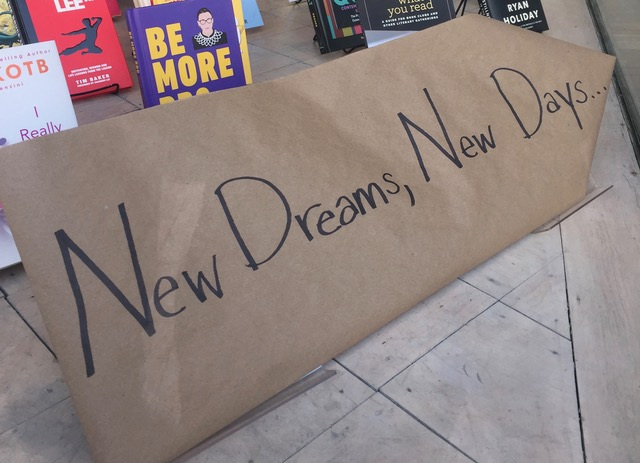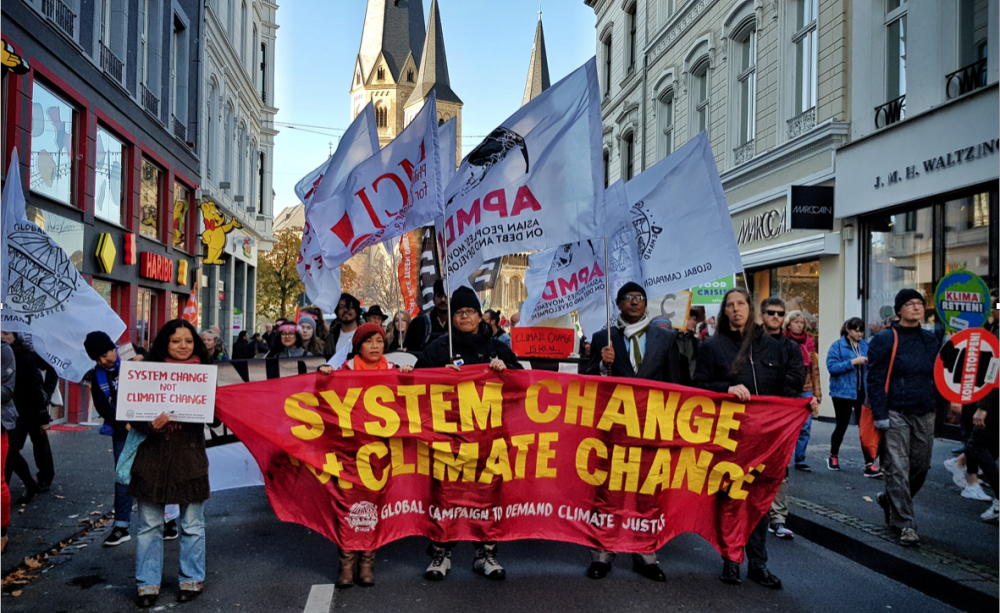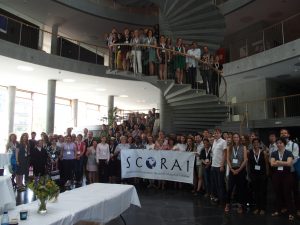This post was originally posted on NewDream.org.
There’s no shortage of anxiety-provoking headlines on the state of our planet and its people. In the pivotal decade that’s just begun, what will get us through? How will we adapt and evolve, even in the face of increasing pressures on people and the planet?
With so much more at stake now than ever before—from income inequality and affordable housing to political and racial divides to action on climate change—we know that we need to bring our full selves to the work ahead. And we know that we are stronger together, when we all engage whole-heartedly.
So, what does this look like? Here are some ideas to help you think through, challenge yourself, and show up for positive change in the world this year.
1. Listen to Young People
For years, and particularly now, the voices of young people serve as the loudest and most passionate at the forefront of social change-making and activism, not just in North America but around the world.
This generation is expert at navigating digital spaces, nuanced in their analysis of systems, and deeply compassionate in how they feel about people and the planet. They are a force to be reckoned with when it comes to amplifying their messages, building movements, and fighting for the future they want to see. Young people have redefined what it means to be a global citizen, showing that the issues that affect some of us affect us all, and that everyone’s voice is significant and needed. For this reason (among many), they are the true leaders of our time.
Make a commitment to listen to young people and follow their lead. Their approach to seeking collective well-being and justice will bring us closer to the bright future we all want.
2. Get Comfortable With Discomfort
As a New Dreamer, you’re probably already feeling uncomfortable on some level about any number of issues. How do we embrace opportunities to grow that sit at the heart of discomfort? How can we more deeply understand the reality of so many, who experience discomfort not as a choice, but because of systems and circumstances beyond their control? This is a big part of improving how we show up in important ways for our communities and the planet.
In order to change, we have to unlearn a lot of what we have previously understood to be true, or ways of thinking we have accepted without question or critique. This process might also require us to give up stuff, ideas, and expectations that have allowed us to feel a false sense of comfort for a long time, and to take personally the injustices that we see in the world—because they impact us collectively.
“In order to change, we have to unlearn a lot of what we have previously understood to be true, or ways of thinking we have accepted without question or critique.”
This is deeply uncomfortable work—especially when it reveals our own ignorance, privilege, and complicity. Yet it’s some of the most important work we can do, because discomfort is where growth and learning happens. It’s never easy to bring your whole self—in all its vulnerability, confusion, pain, and history—to the forefront of this work.
Committing to our collective well-being means stepping into discomfort, for the long haul, and adjusting our mindset and behaviors based on what we learn.
3. Honor the Process, Believe in the Outcome
Fueling hate is fast and easy, and building solidarity takes time and hard work. We also know that with privilege and access comes responsibility—and now is the time and place for us to act responsibly. Even when it seems daunting, when outcomes feel far away, when we are exhausted or it’s hard to feel hopeful, we must choose energy and mobilization over despair. We must believe that it is possible to radically transform the realities we see, and live like it is urgent for us to engage in all the ways that we can.
Our optimism as New Dreamers is a political act—it challenges the enemies of our future, unites us against the forces we seek to dismantle, and demands that they be held accountable. In the words of young climate justice activist Nathan Thanki: “We have no right to despair. Not when history is littered with people defying impossible odds. Not when every fraction of a degree matters.”
So today, look after each other, practice compassion and acceptance, and choose action over despair. And tomorrow, do it all over again. Because we have a responsibility to people—all people—and to our communities and the planet.
4. Judge Systems, Not People
Most of us want to know how we can shrink our environmental footprints and creatively change the ways we choose to consume. At the same time, we’re also becoming more aware as a community that many people don’t have access to choice, and that individual actions aren’t enough to effectively lower emissions on a global scale, or to mitigate the impact of climate change on the lives of those most vulnerable.
Individual people didn’t create the problems that we so desperately wish would be resolved. Systems created those problems, and are designed to perpetuate them. Marginalized and racialized groups are the most vulnerable to and impacted by climate change, and have little choice in their own well-being. This means addressing racism, capitalism, colonialism, and patriarchy together, because inequalities do not exist in a vacuum, and neither does the climate crisis.
Our energy and passion are better utilized when we reserve judgement and critique for the systems at work in climate change, economic inequality, and our political divides—without judgement of people.
5. Resist Binary Thinking, and Make Room for Imagination
It’s a new year, a new decade, a new us, and a new dream. Our movements, our political systems, our behaviors, and our relationships to each other have to transform at the scale of the crises and injustices that we’re facing, collectively. At the same time, we must remember that the world we seek is a reality that hasn’t yet been imagined. It will look different than anything we’ve seen before; it will be more equitable than we have ever experienced; and it will be healthier than we have ever felt. In this new vision, everyone’s voice and well-being matter.
So keep dreaming, and let yourself imagine! And remember that things are never just black and white or two-sided. There is a deep connectedness to everything, and still so much color out there for us to discover. Inspired by the ones who moved mountains before us, and fueled by the communities we serve who will do the same tomorrow, we continue to dream a New Dream.
In questioning the systems that give rise to inequities, and creating brave spaces for thinking to be shifted and for truth to be uncovered, we commit to the movements that unite us—and to holding accountable the forces that fear us being united.
* * *
As a New Dreamer, you’re no stranger to swimming upstream. In small and perhaps big ways, you act and think a little differently than many of your friends and family, around consumption in particular. Trying to step into these new ways of being, and new inquiries, is difficult—and in many ways, life’s work. We are challenged by this every day. And, knowing that we’re all in this together makes the journey worth it.




